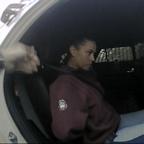'A president has to have immunity,' Trump says following hearing
Former President Trump again stressed that he is entitled to presidential immunity in remarks following his court appearance during today's hearing.
"A president has to have immunity," he told reporters. "And the other thing was, I did nothing wrong. We did nothing wrong."

"When they talk about the threat to democracy, that's your real threat to democracy," Trump said of the election interference case against him. "And I feel that as a president, you have to have immunity. Very simple. And if you don't, as an example of this case, where loss of immunity, and I did nothing wrong, absolutely nothing wrong -- I'm working for the country. And I worked very hard on voter fraud because we have to have free elections."
Trump warned that the case against him will set "a very bad precedent."
"It's a very bad thing. It's a very bad precedent," he said. "As we said, it's the opening up a Pandora's box and it's a very, that's a very sad thing that's happened with this whole situation."
-ABC News' Lalee Ibssa




